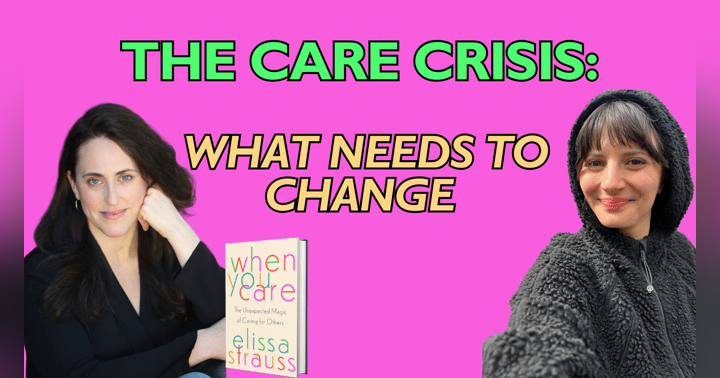What Your Body Is Trying to Tell You: Somatic Therapy and Internal Family Systems

What If That Lump in Your Throat Wasn’t Something to Fix?
What if the lump in your throat, the butterflies in your stomach, or the clenching in your jaw aren’t problems to fix—but messages to listen to?
In episode 117 of How the Wise One Grows, we sat down with somatic therapist and embodiment guide Molly Bienstock to explore what it means to listen to the body—and how practices like Somatic Therapy and Internal Family Systems (IFS) help us hear what those sensations are trying to say.
So often, we override what our bodies are telling us. But in doing so, we miss the deeper conversation happening beneath the surface.
Listening as Healing
Somatic therapy invites us into that deeper conversation. It’s not about “fixing” the body—it’s about learning its language.
Molly describes somatics as a way of returning to ourselves, breath by breath, sensation by sensation. Whether through stillness, movement, sound, or visualization, it’s about building safety from the inside out and learning to trust our embodied experience.
And when we pair that with Internal Family Systems (IFS)—an approach that helps us understand the many internal “parts” that live within us—we gain access to a whole new form of inner dialogue.
Meeting Your Inner Parts
In IFS, we’re not just one unified self—we’re a whole community of parts. There’s the part that wants to perform perfectly. The one that hides when things get too hard. The one that lashes out when we feel unsafe. And underneath all of them, there’s something deeper—the Self with a capital S.
IFS doesn’t try to eliminate these parts. It helps us build relationships with them. To ask, What are you protecting me from? What do you need right now? And as Molly reminds us, these parts aren’t just psychological constructs—they’re living, feeling aspects of us that deserve love, boundaries, and maybe even a little sass.
Curiosity Over Judgment
One of the most powerful shifts we talk about in this episode is trading judgment for curiosity.
Instead of saying, “Why am I like this?”, what happens when we ask, “I wonder why this is showing up?”
Instead of saying, “This is bad”, what if we said, “What is this trying to tell me?”
That shift opens the door to healing. It gives us permission to be in relationship with ourselves, rather than at war with ourselves.
The Parts That Protect Us
We also explore how protective parts—what IFS calls “managers” or “firefighters”—can show up in ways that feel overwhelming. Hypervigilance. Anxiety. Shutdown. Over-functioning. These patterns are often trying to keep us safe, even if the threat has long passed.
Sometimes, the work is about helping those parts take a break—or inviting them to take on a new job. Maybe not guarding the watchtower, but instead making the space around us feel safer.
Healing doesn’t always look soft or quiet. Sometimes it looks like setting a firm boundary with an internal part and saying, “You don’t get to drive the car—but you can still come along for the ride.”
Small Practices, Big Shifts
One of the most grounding moments in our conversation is when Molly guides us through an orienting practice—a simple way to use your eyes, breath, and body to connect to the present moment.
It’s a reminder that healing doesn’t have to be dramatic or intense. It can start with three breaths. A glance around the room. A hand on your heart. A gentle hello to the part of you that’s just trying to get through the day.
Why It Matters
This conversation isn’t just about therapy. It’s about learning to live in our bodies again. To hold space for grief, joy, and contradiction. To meet ourselves with reverence, even when we feel messy or confused.
It’s a reminder that we all have an internal family—and that no part of us is too much, too broken, or too strange to be welcomed back home.
Listen to the episode wherever you get your podcasts, and explore what it might feel like to stop fixing yourself—and start listening instead.





